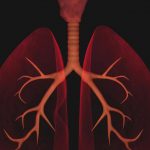
Black ginseng found to protect against lung injury caused by particulate matter
Monday, October 19, 2020 by Evangelyn Rodriguez
http://www.naturalnewsherbs.com/2020-10-19-black-ginseng-protects-against-lung-injury.html
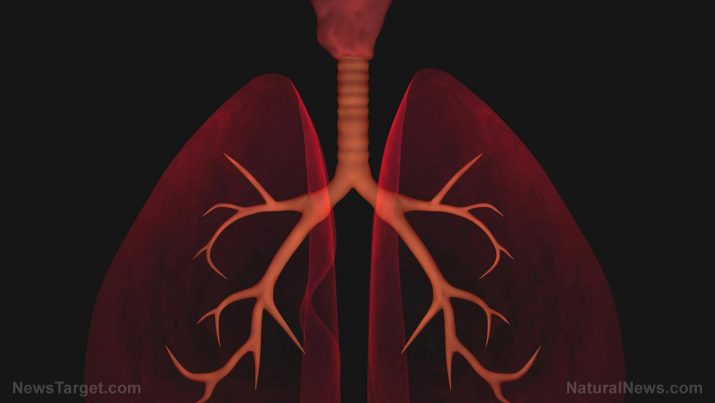
Ginseng is a popular herb used to improve immune function and address sexual dysfunction. It refers to the root of any species belonging to the genus Panax that is used in traditional medicine. P. ginseng, also known as Asian ginseng or Korean ginseng, is one of the most commonly used ginseng varieties. Depending on how they are processed, the roots of the P. ginseng plant can produce either red, white or black ginseng.
Black ginseng is made by steaming and drying white or red ginseng repeatedly. During this process, the ginseng root undergoes what is called a Maillard reaction, which gives it its dark color. Steaming is said to change and enhance the biological properties of ginseng, and studies have shown that the medicinal properties of steamed ginseng are greater than non-steamed ginseng.
In a recent study, South Korean researchers investigated the effects of an extract derived from black ginseng against the lung damage caused by exposure to particulate matter. Particulate matter (PM) is a complex mixture of solid and liquid particles of varying size and composition that can be found suspended in the air. These particles may range from harmless liquid droplets to dangerous smoke, dust, pollen or soot.
The researchers reported their findings in an article published in The American Journal of Chinese Medicine.
Black ginseng can protect the lungs from hazardous air pollution
Particulate matter can be made up of coarse particles and fine particles. Coarse particles refer to the large particles that usually contain earth crust materials and fugitive dust from roads and industries. Fine particles, on the other hand, are usually about 2.5 micrometers in diameter (PM 2.5) or smaller and contain combustion particles, secondary aerosols and recondensed organic and metal vapors.
Due to their composition, fine particles pose considerable health risks. They are said to be responsible for most of the acidity and mutagenic activities of particulate matter. The small size of fine particles also allows them to travel deeply into the respiratory tract and reach the lungs, causing throat and lung irritation, coughing, sneezing, runny nose and shortness of breath. Exposure to high levels of PM 2.5 can also affect lung function and worsen conditions like asthma, lung cancer and heart disease.
Inhalation of PM 2.5 has been linked to lung injury caused by the loss of vascular barrier integrity. The vascular barrier, which is made up of endothelial cells, serves as the wall that separates the blood — along with any harmful substances that may have potentially entered into the bloodstream — from the surrounding tissue of the body. This barrier only becomes permeable to fluids and cells under pathological conditions, such as inflammation.
According to previous studies, black ginseng exhibits a variety of pharmacological properties, which include antibacterial, antihyperglycemic, antibacterial and anti-inflammatory activities. Black ginseng has also been found to have anti-cancer, antioxidant and hepatoprotective properties, which can all be attributed to the transformed ginsenosides it contains. Ginsenosides are the major active compounds present in ginseng. (Related: A component of ginseng found to have anti-tumor effects against liver cancer.)
To investigate the effects of black ginseng on lung endothelial cell barrier disruption and lung inflammation caused by particulate matter exposure, the researchers exposed endothelial cell cultures and mice to PM 2.5 and treated them with black ginseng extract. They then examined permeability, white blood cell migration, activation of proinflammatory proteins, generation of reactive oxygen species (ROS) and histology in these two setups.
The researchers found that the black ginseng extract significantly scavenged PM2.5-induced ROS and inhibited ROS-induced activation of p38 mitogen-activated protein kinase (MAPK), an enzyme involved in inflammatory responses and cell death, while concurrently activating the pro-survival enzyme Akt, which helped maintain endothelial integrity. The extract also reduced vascular protein leakage, immune cell infiltration and proinflammatory signaling protein release in the bronchoalveolar lavage fluid taken from PM-exposed lung tissues.
Based on these findings, the researchers concluded that black ginseng protects against PM-induced inflammatory lung injury and vascular hyperpermeability.
Sources include:
Tagged Under: Tags: Air pollution, alternative medicine, anti-inflammatory, black ginseng, Chinese medicine, goodhealth, goodmedicine, goodpollution, goodscience, herbal medicine, Herbs, lung health, lung inflammation, natural cures, natural medicine, particulate matter, PM 2.5, prevention, remedies, research
RECENT ARTICLES


Going green? Here’s what you need to know about medicinal herb gardens
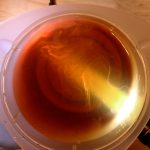
Health Ranger unveils STUNNING natural medicine breakthrough: How to make your own “green chemistry” nanoparticle medicine at home, to treat drug-resistant bacterial infections and more
By Mike Adams
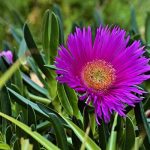
Evaluation of the safety and phytochemical content of Carpobrotus edulis
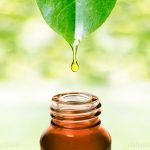
Evaluating the antioxidant activity of Satureja hortensis essential oil for food applications
COPYRIGHT © 2017 NATURAL NEWS HERBS


